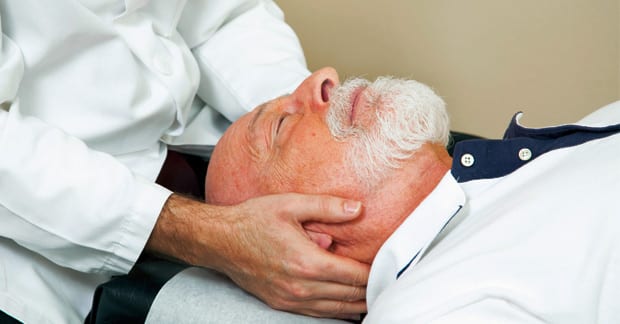The benefits of chiropractic are well known when it comes to the management of lower back pain arising from various low back conditions. But, looking beyond the localized low back benefits of spinal manipulation, the positive effects on bowel and bladder function are less well known. The nerves that exit the spine in the low back region, when irritated, can result in pain and/or numbness that can travel down in one or both legs, which is a common complaint of the person suffering from a number of low back conditions, most commonly lumbar disk herniations. What about the effects on the organs, particularly the bowel and bladder?
In review of the anatomy, the disks lie between the vertebral bodies in the lumbar, thoracic (mid-back), and cervical (neck) regions and act as shock absorbers, cushioning the spine as we sit, walk, run, and play. The outer part of the disk is made up of tough, ligamentous tissue arranged in layers that resemble the rings of an oak tree stump. The center or nucleus is liquid-like in comparison and gives the disk its shock absorbing quality. The disk, despite how tough it is, can be injured, and this usually occurs when a twist + bend + lift combination movement occurs. This force can tear the outer layers of the disk and result in localized low back pain. If enough rings break or tear, the center or “nucleus” of the disk can leak out and it can pinch the nerve as it exits out of the spine. Terms like “slipped disk,” “herniated disk,” “ruptured disk,” and “bulging disk” all refer to this process where the nerve gets trapped between the bony spine and herniated disk material and pain shoots or radiates down the course of the nerve. So what does this have to do with bowel and bladder function?
First, it must be mentioned that when a patient presents with a loss of bowel or bladder control, where there is either, 1. the inability to urinate or have a bowel movement exists or 2. lack of control exists and accidents occur due to the lack of control, THIS REPRESENTS AN EMERGENCY! Though uncommon, IF either scenario occurs WITH associated low back pain and one or both leg numbness and pain, this may represent a condition called “cauda equina syndrome” (CAS) where a large herniated disk is pressing on the nerves in the low back significantly altering the nerve’s function. When this scenario exists, studies have shown that if the pressure on the spinal nerves is not removed quickly (within 8-12 hours), the bowel/bladder dysfunction WILL BECOME PERMANENT. The good news is that this is quite rare, but because the long-term side effects are so devastating, it must be mentioned at the outset of this discussion so that prompt emergency surgical correction is quickly considered. Now that we have put CAS in a class by itself to understanding the importance of prompt emergency surgical care, let’s look at what effects, if any that exist, between manipulation and bowel/bladder function.
In a 2013 article reviewing research on the benefits of manipulative treatment for lower urinary tract symptoms in women, several randomized, controlled trials were reportedly found to support this relationship. Another study published by a chiropractor and a massage therapist on the beneficial effects of visceral massage on post-operative ilieus showed promising benefits in this relatively common post-abdominal surgical problem where bowel function slows down or stops. Other studies investigating the effects of spinal manipulation on the treatment benefits for childhood bed wetting (“nocturnal enuresis”) have also been published. Suffice it to say, a trial of chiropractic manipulation is definitely worth the effort in the treatment of non-emergent, bowel or bladder dysfunction given its low risk, low-cost approach.



